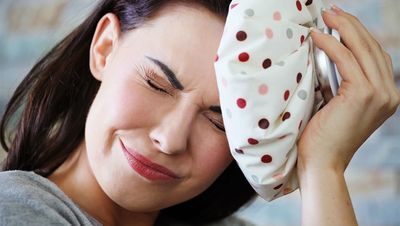Probiotics seem to be everywhere these days. They are marketed for numerous health issues, from irritable bowel syndrome and vaginal yeast infections to life-threatening disorders like the bacterial infection Clostridium difficile.
The new probiotic drink is made of genetically engineered bacteria meant to help people feel better the day after drinking.
While the probiotic gummies that you'll find in supermarkets may not do much for you, good clinical evidence does support the C. difficile treatment, known as a fecal transplant, despite a recent setback, and there are always new probiotic regimens entering the scene. One emerging such treatment targets the hangover.
The Lowdown
You read that right – although "hangover" is a loaded term, according to ZBiotics, the company that's developing the product. The popular understanding of a hangover implies a collection of symptoms like a headache and fatigue, many of which result simply from dehydration and low-quality sleep. But those aren't the problems that the new product, a genetically engineered form of a common bacterial species, was developed to confront.
"Dehydration and poor sleep have actually always been pretty simple to deal with by having a good breakfast and some caffeine," notes ZBiotics founder and microbiologist Zack Abbott. Instead, the product targets acetaldehyde, a chemical that accumulates in the body if more than small amounts of alcohol are consumed.
Normally, body cells produce an enzyme that converts acetaldehyde into harmless acetic acid. But the enzyme becomes overwhelmed if you drink more than a little alcohol, or if you have a certain genetic deficiency.
(Zbiotics)
A new probiotic drink aims to neutralize a chemical that builds up in the body after drinking alcohol.
"I started ZBiotics with the hypothesis that if we used edible probiotic bacteria to make enzymes, and chose applications in which the enzymes these microbes make would be useful directly in the gut after you eat them, we could create all sorts of beneficial products," says Abbott. "I started with alcohol with the idea that we can augment the body's natural ability to digest its nasty byproduct, acetaldehyde, helping people feel better the day after drinking."
Next Steps
Based on the premise that the engineered bacteria augments a natural body function, ZBiotics had the product "sampled by thousands of beta-testers," including ZBiotics personnel, with "almost unanimously positive feedback," says Abbott.
"We are working on future scientifically controlled testing for publication."
ZBiotics is to set to launch on the market next week as a probiotic supplement, a category that does not require FDA approval. But some observers are troubled over whether the new product is attempting to serve a medical function without going through the standard drug testing process.
"I am skeptical of any new alternative product that is not FDA approved, has not undergone rigorous double-blind placebo control testing and adverse effects evaluation, and cites anecdotes as evidence of its efficacy," warns Heather Berlin, a cognitive neuroscientist and assistant professor of psychiatry at Icahn School of Medicine at Mount Sinai, in New York.
Abbott acknowledges that his product still needs to undergo rigorous study. "We are working on future scientifically controlled testing for publication," he says, noting that the company was "founded and [is] run by people with backgrounds in academic research."
Open Questions
Moving beyond the need for proper testing, Berlin has an additional concern: will a "hangover"-blocking substance cause people to drink more alcohol, or mask important physiological sensations like thirst?
"If that negative feeling is obscured, they may not [rehydrate], which can cause numerous adverse effects," Berlin says.
As for excessive drinking, there is a treatment on the market that does the opposite of Zbiotics. Disulfiram, commonly given to alcohol abusers, inhibits the very enzyme that ZBiotics supplements, causing acetaldehyde to accumulate especially fast. This makes drinking a pretty miserable experience.
But Abbott says his product would not interfere with disulfiram.
"[Zbiotics] is about enjoying the special moments in life where alcohol happens to be involved, but isn't the main focus."
"Disulfiram globally inhibits the enzyme throughout the entire body, including the liver, creating a massive amount of acetaldehyde at once, making the person ill immediately and forcing them to stop drinking right away," Abbott explains, whereas his product exerts its effects in the gut, and is really only helpful the next day. Thus, timing is everything; the probiotic would not change the experience at the moment of drinking.
"ZBiotics isn't about going out and ripping shots all night," Abbott says. "It's about enjoying the special moments in life where alcohol happens to be involved, but isn't the main focus. Weddings, celebrations, weekends with friends. And wanting to do that enjoyably while being safe and responsible at the same time."
